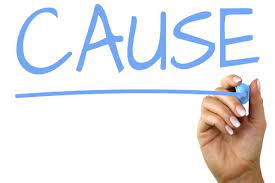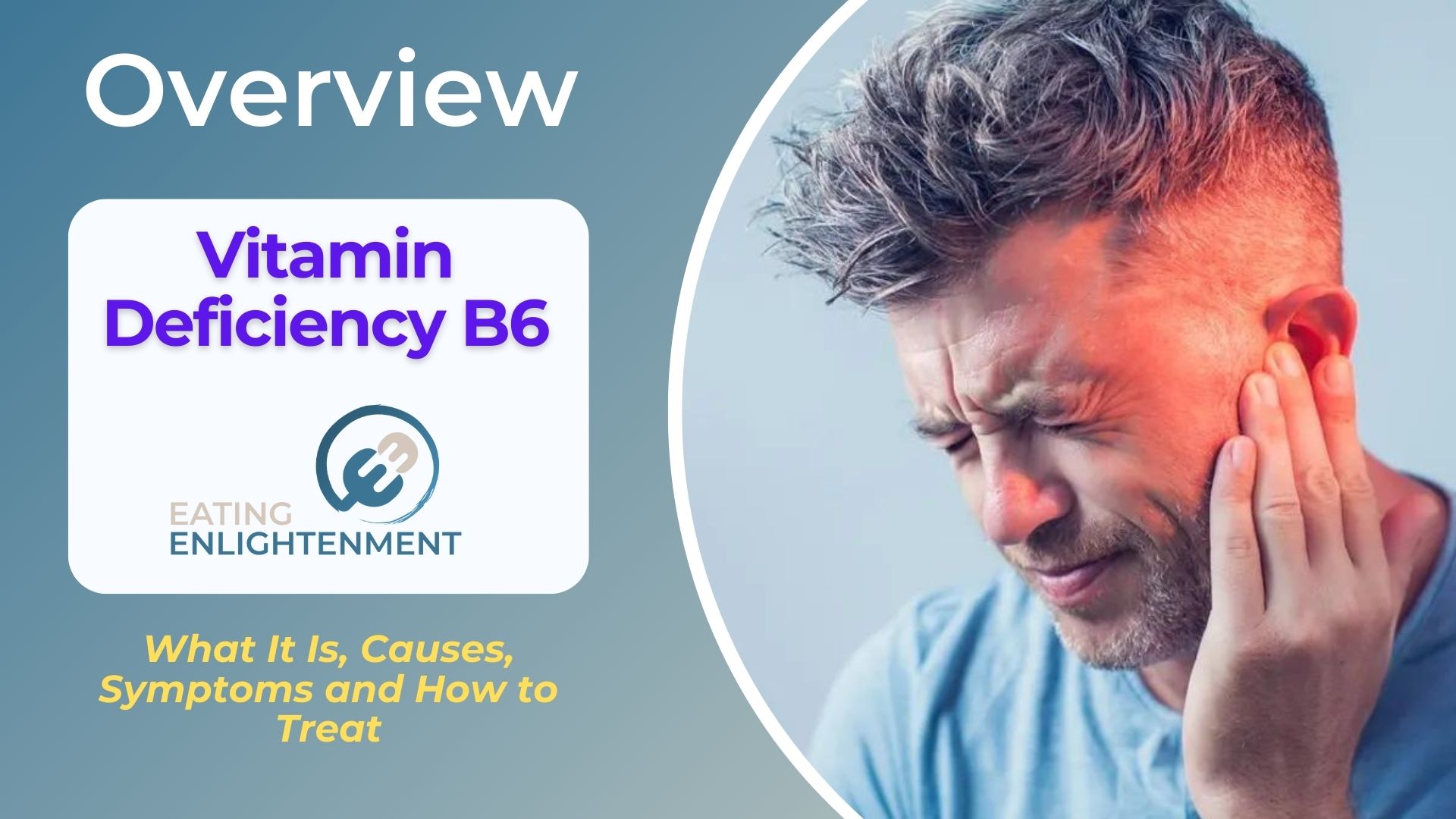Vitamin deficiency b6 is a problem that can occur when someone does not get enough of the vitamin B6. This can lead to a number of problems, including fatigue, nausea, and anemia.
It is important to be able to recognize the symptoms of this problem like dry lips and seek treatment if necessary.
In this blog post, we will discuss what Vitamin deficiency b6 is, the causes and symptoms, how it is diagnosed, and how it is treated.
What are the Causes of Vitamin B6 Deficiency?

There are a number of different things that can cause someone to become Vitamin B deficient. One of the most common causes is not getting enough of the vitamin in their diet.
This can happen if someone does not eat enough foods that are rich in Vitamin B or if they have a medical condition that prevents their body from absorbing the vitamin properly.
Another common cause of Vitamin B deficiency is alcoholism.
People who drink excessive amounts of alcohol are more likely to become deficient in a number of vitamins, including Vitamin B.
Alcoholism can cause damage to the liver, which is responsible for processing and storing many vitamins and minerals. This can lead to a Vitamin B deficiency.
Certain medications can also cause Vitamin B deficiency.
These include diuretics, anticonvulsants, and isoniazid.
People who take these medications on a regular basis may need to supplement with Vitamin B to avoid becoming deficient.
Heart disease
Crohn’s disease, and celiac disease are also conditions that can lead to Vitamin B deficiency.
This is because these diseases can cause damage to the intestines, which make it difficult for the body to absorb other B Vitamins properly.
As you know, Vitamin B is water soluble, which means that it is not stored in the body. This means that if someone is not getting enough Vitamin B, they can become deficient very quickly.
Premenstrual syndrome (PMS)
Vitamin B deficiency can also be caused by premenstrual syndrome (PMS). This is because during the luteal phase of the cycle, the body’s Vitamin B stores are depleted.
Pregnant women are also at risk for B Vitamin deficiency. This is because during pregnancy, the body’s Vitamin B stores are used to support the growing baby.
Rheumatoid arthritis
Vitamin B deficiency can also be caused by rheumatoid arthritis.
This is because the inflammation associated with this condition can damage the intestines and make it difficult for the body to absorb Vitamin B.
Fatigue
One of the most common symptoms of Vitamin B deficiency is fatigue. This can be caused by a number of different things, including anemia, which is a condition that occurs when there are not enough healthy red blood cells in the body.
Fatigue is also one of the most difficult health conditions since when you’re out of energy — you don’t know where you are heading off to.
Red blood cells are responsible for carrying oxygen to the tissues and organs.
When there are not enough red blood cells, the body does not get enough oxygen and this can lead to fatigue.
Nerve Function
Vitamin B deficiency can also cause problems with nerve function. This is because Vitamin B is necessary for the proper development of the nervous system.
People who are deficient in Vitamin B may experience tingling or numbness in their hands and feet, problems with balance, and muscle weakness.
Depression
Vitamin B deficiency can also cause mood swings and depression. This is because Vitamin B is involved in the production of serotonin, which is a chemical that helps to improve mood.
Vitamin B deficiency can also cause problems with memory and brain function. This is because Vitamin B is involved in the production of dopamine, which is a chemical that helps to regulate mood and cognition.
Nausea and vomiting during pregnancy (morning sickness)
Nausea and vomiting during pregnancy is commonly referred to as “morning sickness.” Morning sickness can occur in the first trimester of pregnancy and is typically caused by a combination of hormones and Vitamin B deficiency.
Vitamin B is important for the proper development of the nervous system.
When a pregnant woman is deficient in B Vitamins, her baby’s nervous system may not develop properly. This can lead to a number of problems, including birth defects, mental retardation, and cerebral palsy.
Tardive dyskinesia
Tardive dyskinesia is a condition that is characterized by involuntary movements of the face, tongue, and extremities.
This condition can be caused by a number of different things, but it is most commonly associated with the use of antipsychotic medications.
Antipsychotic medications work by blocking dopamine receptors in the brain.
Carpal tunnel syndrome
Carpal tunnel syndrome is a condition that is characterized by pain, numbness, and tingling in the hands and wrists. It is caused by a compression of the median nerve.
Vitamin B deficiency has been linked to carpal tunnel syndrome. This is because Vitamin B is involved in the production of myelin, which is a substance that helps to protect the nerves.
When there is a Vitamin B deficiency, the myelin does not develop properly and this can lead to pain of the median nerve.
Age-related macular degeneration (AMD)
Age-related macular degeneration is a condition that causes vision loss. It is the leading cause of blindness in people over the age of 60.
Vitamin B supplements can help to prevent or slow the age-related macular degeneration.
What is pyridoxine deficiency?
Pyridoxine deficiency is a condition that is characterized by a Vitamin B deficiency. Vitamin B is important for the proper function of the nervous system, and pyridoxine is one of the most important forms of B Vitamins.
Pyridoxine deficiency can cause a number of different problems, including birth defects, mental retardation, and cerebral palsy.
Precautions

Vitamin B supplements should be taken with caution.
In general, supplements can interact with a number of different medications, so it is important to speak to a doctor before taking any Vitamin B supplements.
Vitamin B12 is the only form of Vitamin B that is stored in the body, and it is not possible to overdose on Vitamin B12.
Pregnant women should speak to their doctor before taking any Vitamin B supplements, as too much Vitamin B can lead to birth defects.
If you are worried about a possible vitamin deficiency, for peace of mind you should order an online vitamin deficiency blood test. Read about the top best blood tests for vitamin deficiency here.
How to Take It?

So how to take the supplements? Vitamin B supplements are available in a number of different forms, including tablets, capsules, and liquids.
Vitamin B12 is only available in injectable form. These injections are usually given intramuscularly (into the muscle) or subcutaneously (under the skin).
I highly recommend to check with a doctor before proceeding any further, but I also acknowledge that if you want to take supplements at home, technically there’s nothing wrong with it. Since it not only helps you with vitamin b6 deficiency but also with your immune system.
What are the foods that can help?

As you know, I mostly encourage people to take some good foods to that are healthy in vitamins. I believe foods can be a wonderful source for recovery.
There are a number of different foods that can help to prevent or treat Vitamin B deficiencies. If you want to get started, here are a few of them:
- Liver
- Kidney
- Eggs
- Milk
- Cheese
- Whole grains
- Legumes
- nuts and seeds.
Vitamin Deficiency B6 – Summary
Vitamin Deficiency B12 can cause a number of problems, including birth defects, mental retardation, and cerebral palsy. They should be taken with caution as they can interact with a number of different medications.
It is important to speak to a doctor before taking any Vitamin B supplements. Vitamin B12 injections are usually given intramuscularly or subcutaneously.
There are a number of different foods that can help to prevent or treat Vitamin B deficiencies, including liver, kidney, eggs, milk, cheese, whole grains, legumes, nuts and seeds.
Vitamin B supplements should be taken with caution as they can interact with a number of different medications


